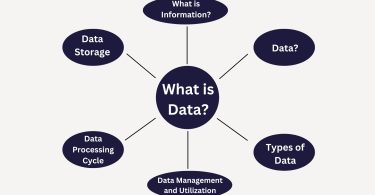AI is now a necessary part of our everyday lives and is changing every industry by means we never could have imagined. Artificial Intelligence is transforming various industries, including sports, education, and construction. AI education has given students of all ages new opportunities. Traditional learning techniques, such as online resources, virtual classrooms, and mobile digital courses, have been completely transformed by AI education software development. It’s about time we discussed the uses and advantages of AI development of apps in the education sector, since more and more EdTech companies are implementing AI technology.
AI in education simplifies a variety of jobs while making the learning process easier because of its many advantages. Let’s examine the top AI in education cases that demonstrate how technology is revolutionizing education and learning.
- Customized Education
Every student responds differently to information. While some absorb things fast, others take time. The conventional educational system did not incorporate the concept of individualized instruction for every single student. AI in online learning can help in this situation. In the field of education, artificial intelligence guarantees that educational software is customized for each user. Additionally, the system supports the way students understand different lectures and adjusts to that process to reduce load by utilizing supporting technologies like machine learning in education. This fusion of AI and learning is tailored to each person’s needs via AI-infused games, personalized learning experiences, and other features.
- Automation of Tasks
AI takes up the majority of value-added jobs in virtual classrooms and school education. Artificial Intelligence solutions for academia can also be used to create a customized teaching process, grade tests, check homework, organize research papers, keep track of reports, create presentations & notes, and handle other administrative duties. For this reason, companies rely on incorporating AI technology in their operations to meet everyday objectives. Artificial Intelligence enhances the knowledge and productivity of the learning environment by automating routine tasks.
- Flexible Availability
Users may now take use of AI’s benefits in education because they have total access to information. Over sixty percent of education-related enterprises, according to a recent poll, depend on AI/ML-based educational app development that is bolstered by contemporary tools and features. Features such as multilingual support facilitate the translation of content into multiple languages, hence making it easier for native speakers to teach and learn. Additionally, AI is essential for instructing audiences that are blind or deaf. Presentation Translator, an artificial intelligence-driven translation tool, provides virtual lectures with real-time subtitles.
- Assessing the Vulnerabilities in the Classroom
One of the several advantages of AI technology for education is the ability to use remote learning while still having a positive economic impact. Nonetheless, a lot of experts think AI will eventually take the place of human interaction in education. Now, this may not apply to the education industry, but it does to other industries. AI and education work together to enhance both traditional classroom instruction and online learning.
- Bridging the Skill Divide
Developing students’ skills further is an important way for companies to close the digital divide. Software and app development services driven by AI and ML provide broadly accessible and reasonably priced up skilling options for students. It’s not just for students: retraining and up skilling the current personnel in business may raise spirits and inspire a company-wide dedication to innovation and progress.
Furthermore, by examining how individuals learn new skills, the application of AI in the education industry has an impact on the learning and development field. The system automatically adjusts the learning process to human study and learning styles as soon as it detects them. Artificial Intelligence only assists the professionals by personalizing the learning process for each learner.
- Twenty-four seven Support for Conversational Artificial Intelligence
An increasingly common example of AI being used in education to gather data and deliver relevant information and support are chatbots. Teachers and business executives alike gain from this when it comes to student participation in personalized learning. Talkative By closely monitoring the pattern of information consumption and adapting to meet the demands of the learner, artificial intelligence in education provides intelligent tutoring. Globally, people choose corporate training programme and distance learning since they don’t need to take time off from their jobs, families, or classrooms. Here, AI chatbots can answer enrollment-related questions, offer prompt assistance, give users access to necessary study materials, and offer round-the-clock support.



